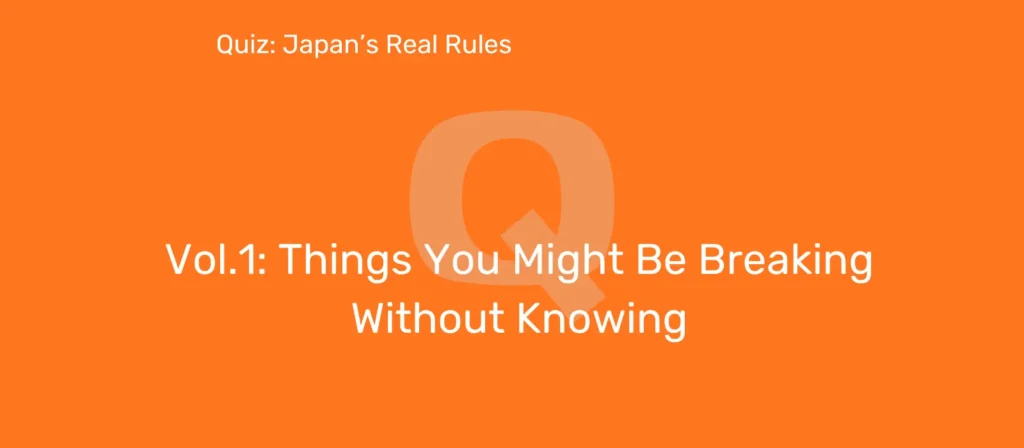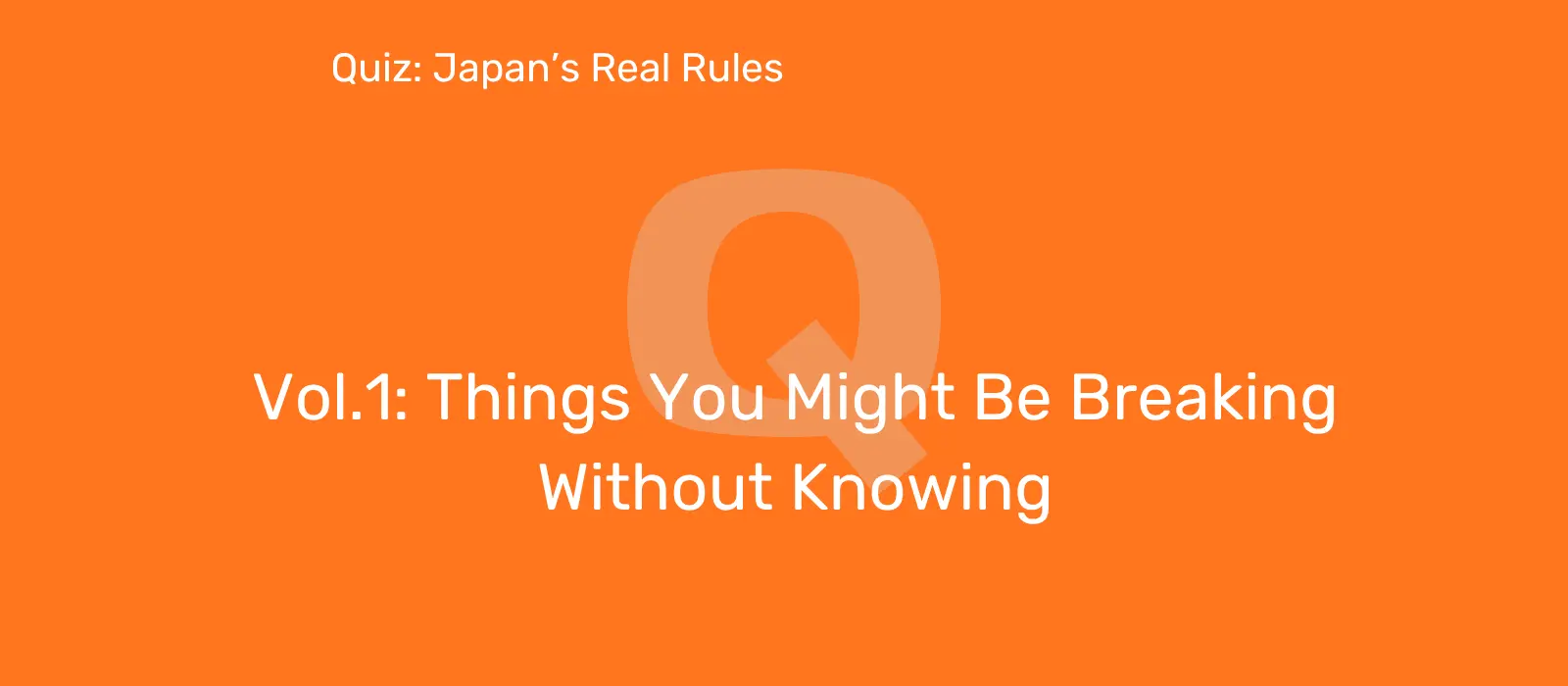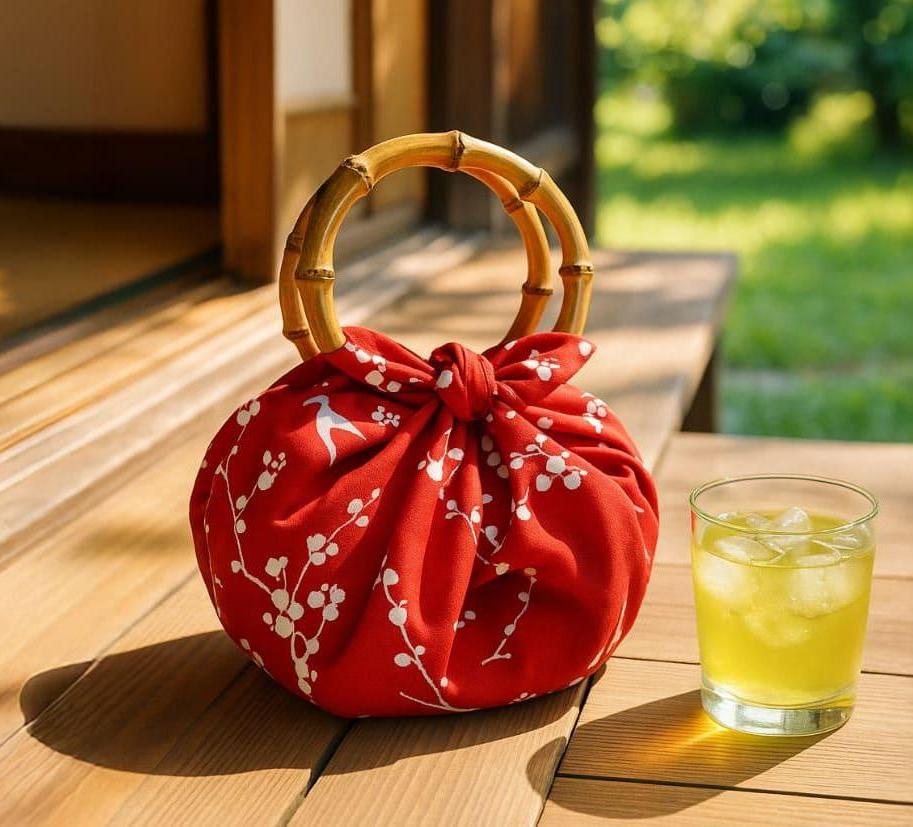Welcome to a new series on Not All Sushi!, titled “Quiz: Japan’s Real Rules.”
In this series, we explore the strange world of Japan’s real rules — the hidden booby traps of everyday life, and the customs that make you go, “Japan, you okay?”
Each round comes in quiz form. How many can you get right?
Our first theme is “Things You Might Be Breaking Without Knowing.”
Five questions await — good luck.

1. 5 Questions about Japan’s Everyday Rules
Q1 The Law-Abiding Pedestrian
Which of the following pedestrian behaviors is illegal in Japan?
(Difficulty: ★☆☆☆☆)
- Crossing a crosswalk on a red light
- Walking on the sidewalk while very drunk
- Three-or-more people walking side-by-side

Answer (Tap or click)
1. Crossing a crosswalk on a red light
Explanation:
In Japan, crossing against a traffic signal generally counts as ignoring the signal and can be treated as an offense. Fines are uncommon, but you may be stopped or reprimanded—especially near schools or in smaller towns.
2. Being drunk in public is not automatically illegal, though causing a disturbance can lead to trouble
3. Walking side-by-side is usually permitted unless it obstructs traffic.
Q2 Everyone Loves Free Food
Which of the following actions is explicitly prohibited by local ordinance?
(Difficulty: ★★★☆☆)
- Feeding koi fish in a Tokyo pond
- Feeding pigeons in a Yokohama park
- Serving your neighbor in Kyoto some curry (authentic Indian-style )

Answer (Tap or click)
2. Feeding pigeons in a Yokohama park
Explanation:
In Yokohama, feeding pigeons in public parks is explicitly prohibited by local ordinance. I doubt they asked the pigeons for their opinion.
1. There’s no specific law against feeding koi in Tokyo, but don’t feed fish in private ponds or places where it’s prohibited.
3. Perfectly fine — and probably appreciated.
Q3. Say Cheese
Which of the following places should you avoid photographing without permission?
(Difficulty: ★★☆☆☆)
- Buddhist statues inside a temple’s main hall
- Pachinko machines inside a gaming parlor
- Both

Answer (Tap or click)
3. Both
Explanation:
Most temples in Japan prohibit photography inside the main hall, especially around sacred statues.
As for pachinko parlors — taking photos there is also a terrible idea.
If staff suspect you of cheating or filming machines for analysis, you might find yourself politely escorted to the back room. Don’t risk it.
Q4. Where Lost Things Go
According to Tokyo Metropolitan Police data from 2024, which of the following ratios is correct?
(Difficulty: ★★★☆☆)
- Reports of lost items : reports of found items = 4 : 1
- Reports of lost items : reports of found items = 1 : 1
- Reports of lost items : reports of found items = 1 : 4

Answer (Tap or click)
3. Reports of lost items : reports of found items = 1 : 4
Explanation:
In Japan, people who report finding lost property far outnumber those who report losing it.
Surprising? Maybe — but it reflects how Japan has quietly perfected the art of returning what’s lost.
So if you misplace something during your trip, don’t give up too quickly — it might already be waiting for you at a police station.
Q5. Smart Shopping
Which of the following actions is actually illegal in a Japanese convenience store?
(Difficulty: ★★☆☆☆)
- Picking products from the back of the shelf for a longer expiration date
- Carrying your umbrella into the store on a rainy day instead of using the stand
- Drinking a bottle you plan to buy while still shopping

Answer (Tap or click)
3. Drinking a bottle you plan to buy while still shopping
Explanation:
In Japan, consuming or using a product before paying for it counts as a crime — even if you fully intend to pay later.
1. Not illegal, though some people are rethinking this habit as eco-consciousness grows.
2. Also not illegal, but bringing a wet umbrella inside makes the floor slippery, so it’s considered bad manners.
On the other hand, leaving your umbrella in the stand often leads to a classic case of “umbrella alchemy” — someone swaps their old one for a nicer one.
It’s one of those Japanese dilemmas.
2. The End — for Now
How did you do?
If you got every question right — are you sure you’re not Japanese?
If you missed them all, don’t worry.
Just read the rest of this site, and you’ll soon start to see the world a little more like we do.
Stay tuned for Vol.2 of Japan’s Real Rules!




